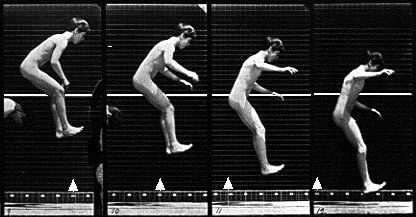
Fashioning the Body: Versions of the Citizen, the Self, and the Subject
The Evergreen State College | Fall 2007-Winter 2008
User Login |
Corpus - In Defense of Assumptions
I’ve been thinking a bit about assumptions since reading Melanie’s post (http://www2.evergreen.edu/fashioningthebody/e-corpus-3-assumptions). This isn’t a direct response, it’s simply my own thoughts about assumptions as they’ve been influenced by Foucault.
People have often told me that they didn’t want to assume that I’m gay. However, I want people to make this assumption about me. If you don’t assume that I’m gay, then I have to come out to you. I’ve been coming out to people since I was 14 and I’m tired of it. I’ve thought about it for a while as the difference between coming out and being out. Since reading the first half of The History of Sexuality, I’ve made the connection that coming out is a form of confession. Before coming out to someone, I would have to be conscious of the fact that person doesn’t know I’m gay, which alters my behavior and how I act. The discourse of coming out makes being gay a secret identity that you hold inside until you loudly proclaim it. When people don’t want to assume that someone is gay, they aren’t being respectful of the person’s secret identity. They’re asserting the normalness and preferedness of being straight (would it really be that bad to assume a straight person was gay?), and they’re also assigning being gay to a category of identities that need to be confessed. I make assumptions about people every day based on their appearance and behavior. Maybe that makes me awful, but I think most people do. I don’t think there is a true, inner identity that is separate from appearance and behavior. Foucault critiques the whole idea of identity, revealing it as a normalizing construct. I think that what is “true” about a person, what constitutes their “identity,” is the way they construct their appearance, the behaviors they choose to display. If I were to studiously avoid assuming things about people based on appearance and behavior, I would be affirming the normalizing discourse of inner identity. I think there is certainly one kind of problematic assumption – the assumption that any given person is part of the normal category in a normalizing binary. For example, the reason it’s necessary to come out is the assumption that everyone is straight unless they state otherwise. Is it possible that refusal to make assumptions about people often reinforces the general assumption that they are “normal” in whatever category is in question? Perhaps refusing to assume that someone is gay is just another way of assuming that they’re straight.
Submitted by Spencer on Mon, 10/08/2007 - 5:02pm. Spencer's blog | login or register to post comments | printer friendly version
|
Who's onlineThere are currently 0 users and 1 guest online.
Events
|
|||||||||||||||||||||||||||||||||||||||||||||||||